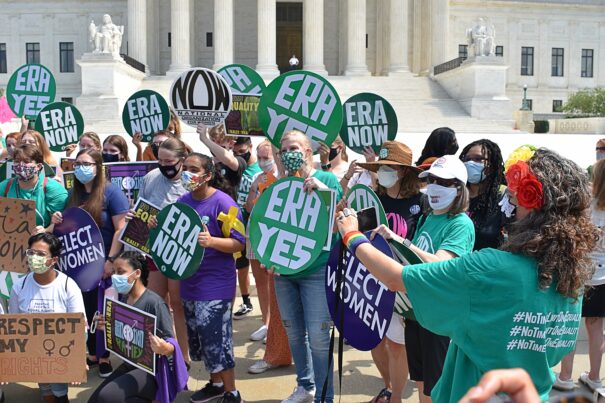
On Thursday afternoon, around 150 activists and women’s rights leaders from across the country gathered in front of the U.S. Supreme Court, across from the U.S. Senate, to rally for removal of the arbitrary timeline placed in the preamble of the Equal Rights Amendment. The U.S. House of Representatives voted to remove the time limit in March of this year, but thus far the Senate has failed to follow suit despite a narrow pro-ERA majority.
#Rally4ERA was co-sponsored by the Feminist Majority and the ERA Coalition, along with coalition partners The National Organization for Women (NOW), The League of Women Voters, The Women’s March, The National Congress of Black Women, The National Coalition on Black Civic Participation, The Transformative Justice Coalition, MANA, Generation Ratify, and many others.
The multigenerational crowd withstood the oppressive DC heat and humidity and chanted “ERA Now!” and “Enough is enough!” as over a dozen speakers passionately made the case for removing the timeline and enshrining gender equality in the U.S. Constitution after fighting to pass the ERA for a century.
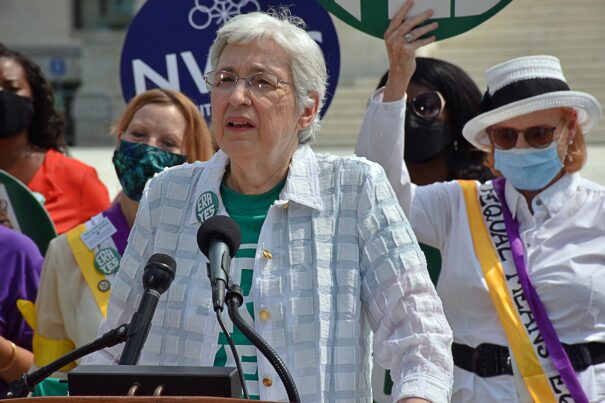
“This movement is global, and it will not rest until all women everywhere, and all girls are treated equally, and frankly that there is no discrimination on the basis of sex,” said Eleanor Smeal, president of the Feminist Majority.
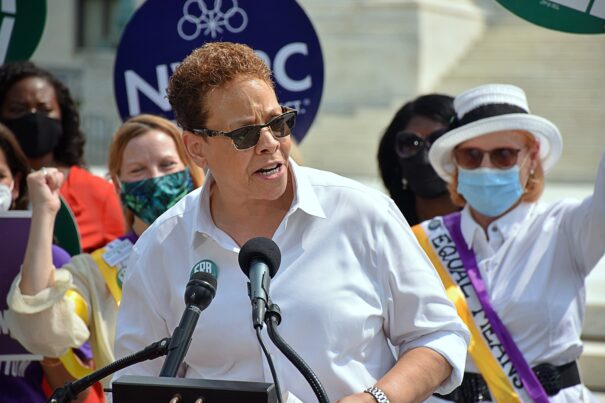
“Take the shackles off my feet!” cried Nevada state Senator Pat Spearman, who headed the movement to make Nevada the 36th state to ratify the ERA. “We’re fighting not just for pay equity, but we’re fighting also that we will be able to get the promotions that we earn when we earn them and not be denied just because we are women. So what? Take the shackles off my feet! We keep fighting because we want justice when we report sexual harassment and sexual assault and we don’t want them to come up with the whole thing, boys will be boys. So what? Take the shackles off our feet!”
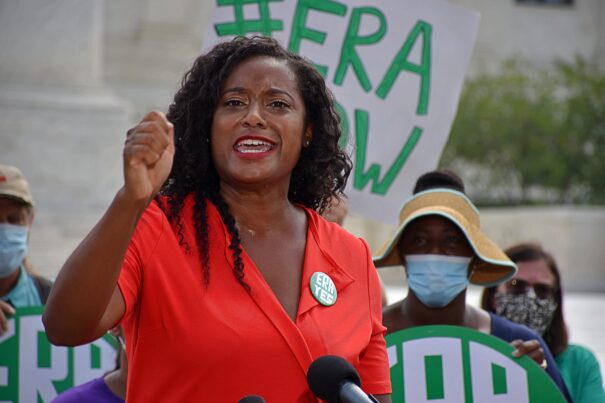
“So again, ladies and gentlemen, they’re trying to deny us. They’re trying to tell us what’s possible. What we can and cannot do,” said former Virginia state delegate Jennifer Carroll Foy, who was instrumental in Virginia’s ratification of the ERA. “But let us be unequivocally clear. Our fate should not be dependent on who is in office and our freedom should not be dependent on an election. And laws can change just as quickly as legislators change their minds. That’s why we need 160 million women and girls to stand in the sun in their full constitutional equality.”
“So Congress, courts, hear me and hear me well,” Foy rallied. “We are here to agitate for equality. We are demanding it without an apology. We will disrupt the status quo, we will fight for change. Because at the end of the day, it is now our time it is now our turn, we will get this done and there is only one way to spell equality today and that is E-R-A!”
Vice President of the National Organization for Women (NOW) Bear Atwood highlighted the need to abolish the Senate filibuster to finish the fight to pass the ERA saying, “Opponents of equality know they can’t win their argument based on merit. So they try to game the system, and there’s no better example of this than the Senate filibuster. Breaking the logjam of the filibuster will open the doors to democracy. Eliminating this relic of Jim Crow would send the Senate to remove the timeline for the ERA ratification, along with other priorities such as the For the People Act and the John Lewis Voting Rights Act.”
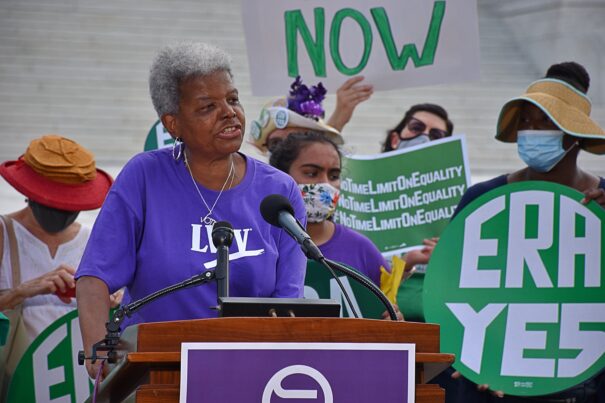
“The suffragists knew their work was not finished at the passage of the 19th amendment. This was just the beginning. They knew that full equality of the sexes deserved a place in our Constitution. They knew it was hard work, but it was not done. We’ve been fighting this fight for over 100 years, c’mon folks let’s get it done,” said Deborah Turner, president of the League of Women Voters. “And now the ERA is closer than ever to taking its’ right place in the supreme law of our land. What stands in our way is an arbitrary, ambiguous, and legally questionable deadline for enactment. Congress has the power to change this. The House has done their part by voting to remove the deadline. The Senate now has a duty—let me say this again—the Senate now has a duty to women, to gender minorities, and allies across this nation to clear the final hurdle and enshrine the ERA into law. They have no legitimate excuse for ignoring the demand of the people.”
Other speakers included Melanie Campbell, president and CEO of the National Coalition on Black Civic Participation and Convener of the Black Women’s Roundtable, Dr. E. Faye Williams, National Chair of the National Congress of Black Women, Amy Hinojosa, President and CEO at MANA a National Latina Organization, Rosie Couture and Belan Yeshigeta, founders of Generation Ratify, Becca Demante, who delivered remarks on behalf of New York Congresswoman Carolyn Maloney, Allison Tovar of the Women’s March, David Broder, president of SEIU-Virginia, and S. Mona Sinha, Chair of the Women’s Fund for Equality.
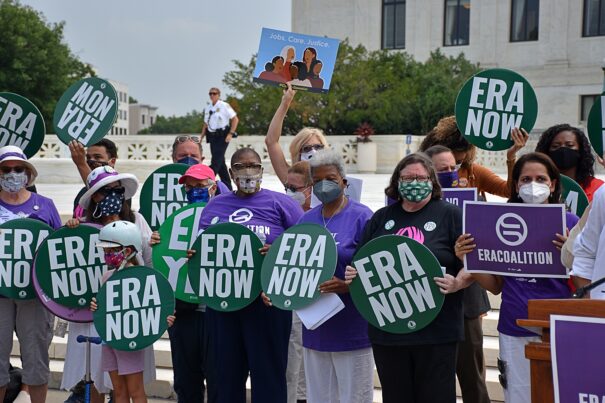
Overall, the message of the day was clear: the Senate must vote to remove the arbitrary timeline from the Equal Rights Amendment and enshrine gender equality in the U.S. Constitution once and for all.
